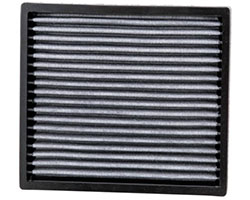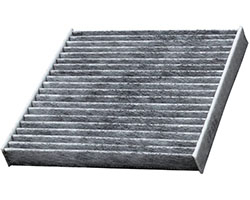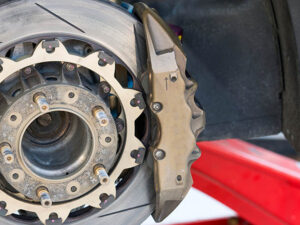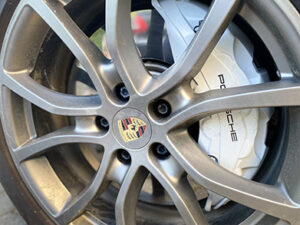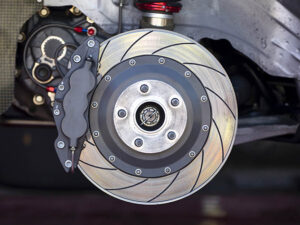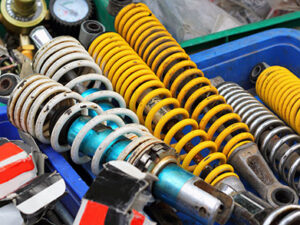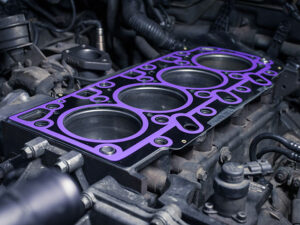Home \ Shop \ Engine & Efficiency \ Cabin Air Filters
5 Best Cabin Air Filters for Car: Review and Shopping Guide
Here are proven filters, which are the best to get passengers breathing with clean air in the car's cabin
- 1. Best Cabin Air Filters Review
- 2. FRAM Cabin Air Filter (CF10134)
- 3. K&N Washable Premium Cabin Air Filter (VF2000)
- 4. EPAuto CP285 Cabin Air Filter (CF10285)
- 5. ACDelco Cabin Air Filter (CF188)
- 6. MANN-FILTER Cabin Air Filter (CUK 2939)
- 7. Types of Cabin Air Filters
- 8. Major Cabin Air Filter Brands
- 9. What to Consider When Choosing the Best Cabin Air Filter
- 10. FAQs
- 11. How often should I change my cabin air filter?
- 12. Does my cabin air filter affect my car’s air conditioning?
- 13. Where is the cabin air filter located?
- 14. Do all cars have a factory-installed cabin air filter?
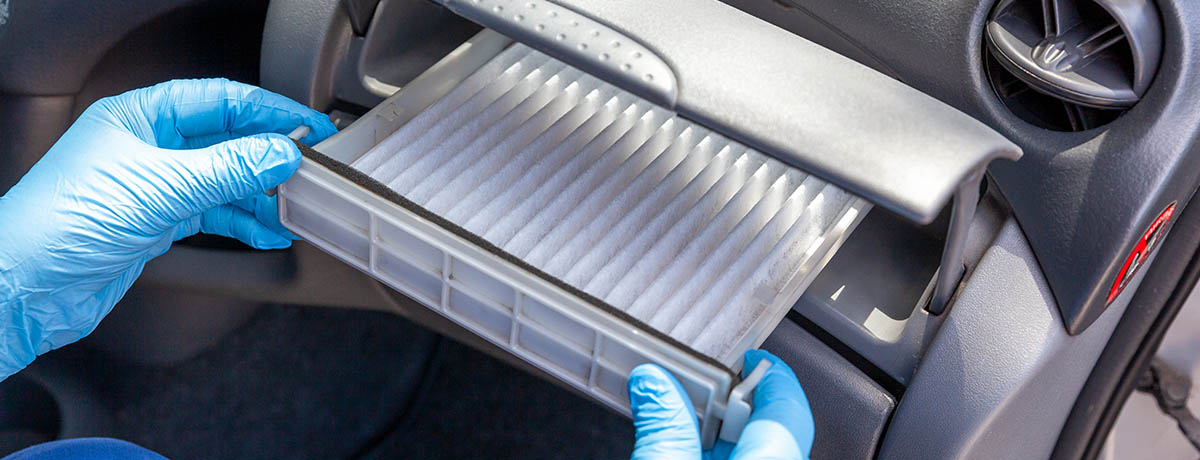
Best Cabin Air Filters Review
If you’ve ever been annoyed by smells of dirt, dust, or even car exhaust in your cabin, your cabin air filter might need a look. These filters clean the air on its way to your cabin, trapping particles like dust, soot, and even bugs along the way. Having the best cabin air filter and replacing your existing one when it gets clogged is essential to a clean and pleasant interior. Let’s take a look at some of the top options on the market and what makes them stand out.
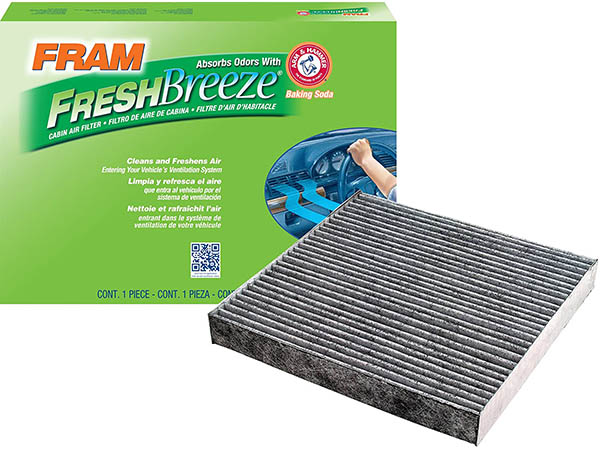
PROS
- Up to 98% filter effectiveness
- Improves smell and air flow
- Easy installation and good fit
- Immediate impact
- Engine protection
CONS
- Not reusable
FRAM is known as a solid manufacturer of many types of filters, and their cabin air filters are no exception. Its solid design and effectiveness at filtering odors and particulates makes it a great choice for your cabin and engine.
The filter employs a combination of baking soda and activated carbon to filter incoming air before it gets to your cabin; this leads to a filtering effectiveness of 98% for contaminants like dust and pollen. Unsurprisingly, the filter immediately improves air flow and overall smell in the car upon installation. Some users even noted that it generates less noise than their old filter as well, but this is to be expected for gunked up air filters.
When it comes to freshness, this filter ranks at the very top. Combined with the easy installation and frequently-claimed perfect fit, this filter’s immediate impact is a refreshing change. It can also reduce potential engine wear by limiting the amount of debris getting into your engine. As for replacement, the intervals that buyers mentioned ranged anywhere from every 6 months to once a year. Either way, it’s best to judge for yourself; if you start to get a musty smell from your AC after a while, chances are a replacement is on the cards.
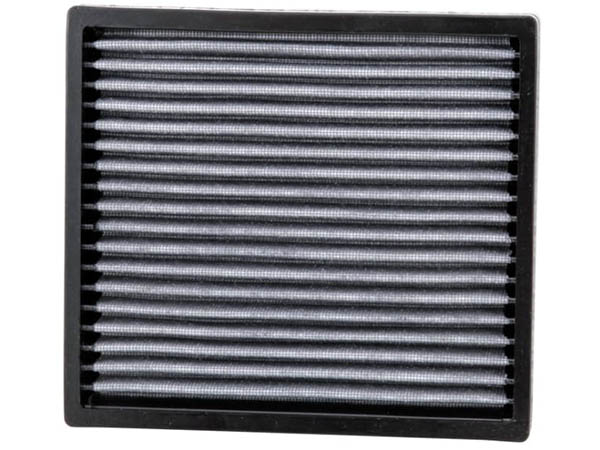
PROS
- Effective at trapping particles and odors
- Washable and long-lasting
- Eco-friendly and a wise investment
- Easy installation
CONS
- Preparing for installation can be difficult
As with many tools for your car (such as oil filters), you have the option of spending a little extra to get a long-lasting washable alternative. Our choice in this department is this K&N premium washable cabin air filter, which neatly combines performance and convenience.
The increased airflow offered by this filter is said to improve heating and cooling efficiency on top of its cleaning properties. Interestingly, the filter is electrostatically charged to boost trapping effectiveness, capturing harmful contaminants like bacteria, mildew, or pollen. As expected, it also helps to control odors in your car, as it’s treated to capture smelly contaminants.
This cabin air filter’s selling point, perhaps, is in its eco-, user-, and budget-friendliness. As it’s a washable filter that’s built to last a car’s lifetime, it’s good for both the environment and your wallet – within just 2-3 wash cycles, this item would’ve paid for itself. In addition, buyers praised its easy installation, noting that it was pretty much as easy as can be. However, one thing to note is the complaint regarding an odd smell for the first few days – to circumvent this, users recommend leaving the filter (outside its packaging) out for a few days before installing it.
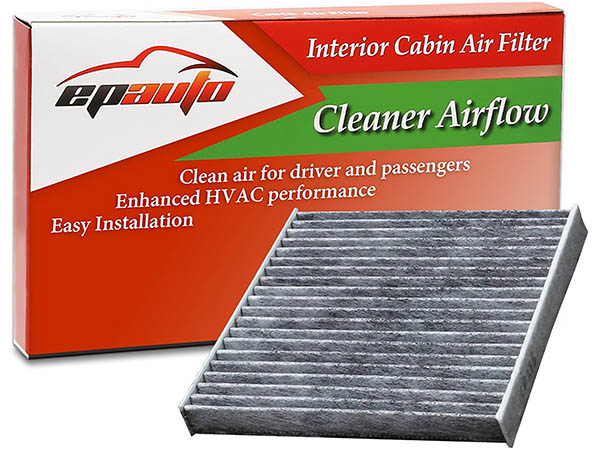
PROS
- Baking soda and carbon design
- Improves smell and air flow
- Easy installation and good fit
- Great OEM alternative
- Very affordable
CONS
- In rare cases, buyers received filters with fewer pleats
If your vehicle falls under any of the above manufacturers, you might have an enticing option to peruse. Despite the low price, this cabin air filter is highly-rated and can last you quite a while.
The EPAuto CP285, while perfect for Toyota and Lexus cars, includes a few other vehicle manufacturers in its range of suitability, namely Land Rover and Jaguar. The filter’s product page should have a comprehensive list to check out for any interested buyers. As for the filter itself, the cleaning and freshening capabilities are, like the FRAM, based on a combination of baking soda and carbon. This design makes it great for improved air flow and filtration.
For its price, it’s surprisingly durable as well: the manufacturer recommends changing this filter every 12 months or 12,000 miles (whichever comes first). Deferring to OEM dealers for replacements could cost you magnitudes more in the long-run, so the filter’s effectiveness, easy installation, and low price make it an obvious alternative for owners of the specified car models. Overall, this cabin air filter is nothing to scoff at – for a budget option, it certainly stands strong even among its premium competition.
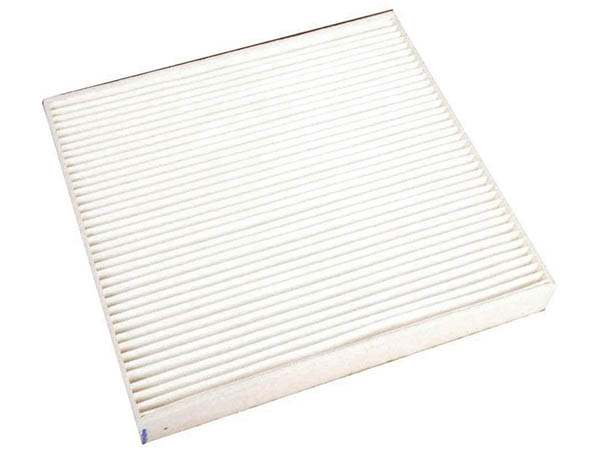
PROS
- Three-layer design for efficient trapping
- Improves smell and air flow
- Great OEM alternative for GM cars
- Great mileage and longevity
CONS
- Made without carbon components
- Potential caveat in terms of installation
This ACDelco model is said to be recommended by General Motors for its vehicle line, a list that includes Chevrolet, Cadillac, and GMC. The filter design and appearance is top-notch, and the longevity offered as a result is nothing short of impressive.
The filter media is made up of three layers designed to capture a range of particle sizes. The outer layer traps 100% of large particles, the middle layer catches any smaller airborne contaminants, and the final layer gives it strength and stability. This seems a smart choice, as reflected by its long-lasting improved air flow and efficient filtering. At first glance, it’s no surprise that it’s recommended by GM itself.
All in all, the filter build speaks for itself; the three layers act as a multi-tiered defense system, resulting in solid value for money in terms of longevity. The installation seems straightforward, but there is one caveat – if it’s been a while since you changed your old filter, you might want to slide a thin material (like a sheet of cardboard) under it before you pull it out to prevent debris from getting into your fan. Other than that, this filter is a solid choice across the board, and has a 12-month/12,000-mile warranty to go with it.
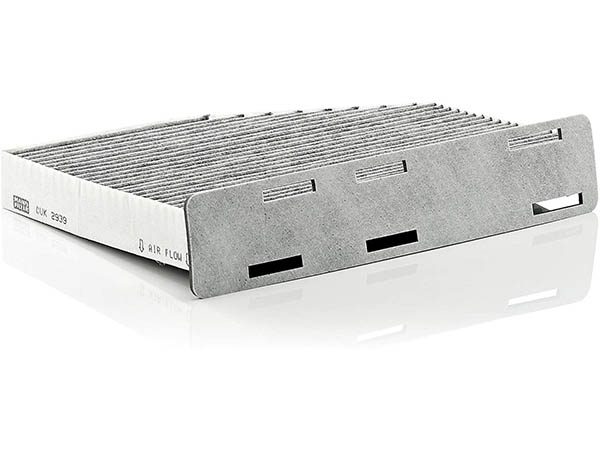
PROS
- Activated carbon and mechanical and electrostatic attraction for solid trapping
- Designed to optimize air flow
- Great OEM alternative for Audi/VW
- Top-shelf mileage and longevity
CONS
- Compatible with not wide range of cars
Our final entry comes in the form of a German-made product designed for Audi and Volkswagen vehicles. While there doesn’t seem to be an exact list of car models it’s suitable for, chances are if your existing filter looks like this one, it’s a good fit.
The design of this cabin air filter offers minimal flow resistance for optimal ventilation, in addition to its filtering of pollen, spores, dust, and even harmful gases. The filtration efficiency is boosted by its activated charcoal build and a combination of mechanical and electrostatic trapping. As this is a fairly specialized design, the fit and seal are pretty close to perfect for suitable cars.
Overall, the limited suitability is the only downside of this product. For Audi and VW owners, however, this filter could be the perfect choice, as its filtration ability and long-lasting effect (up to 20,000 miles according to the manufacturer) couple to make an excellent product. To be safe, however, always keep track of the smell in your cabin – annual changes still make this filter good value for money.
Types of Cabin Air Filters
There are several types of air filters, each with their own advantages. In our short list alone, you might’ve noticed several different types: lightweight media, baking soda, carbon, or a combination – not to mention washable alternatives. Is there a difference in effectiveness, or a clear-cut best option among the different kinds of filters?
- Particle filters. These types of filters are often designed to trap the smallest particles due to carefully-woven media. Of the alternatives, particle filters are typically the best for keeping your cabin free of dust, pollen, or hair.
- Charcoal filters. While not making an appearance in our list, charcoal is an effective filtering agent used in a variety of applications, including water filtration systems. Coal can trap small particles and help filter any unpleasant odors such as smoke
- Activated carbon filters. Similar to charcoal, activated carbon is effective at absorbing both particles and odors, including harmful gases like carbon monoxide. It is one of the more common types of carbon air filters on the market and is often combined with baking soda to maximize odor and debris protection
- Electrostatic filters. Making a couple of appearances on our list, electrostatic filters use a charge to attract particles that would otherwise pass through. Carbon air filters with electrostatic functionality can be very effective at trapping gases, airborne microscopic particles (bacteria, fungus, mold), and foul odors. Generally, electrostatic filters are another type as well (such as activated carbon) to maximize filtration efficiency of both particles and smells.
Practically all cabin air filters can be separated into two groups: particle filters and combination filters. Essentially, combination filters use multiple methods of filtration and protection – these commonly manifest as baking soda/carbon hybrids, but there are several combinations (the Mann-Filter CUK 2939 as an example). Although, when the dust has taken up against your cabin, quality microfiber towels and leather conditioners help to clean up the car inside.
Major Cabin Air Filter Brands
- FRAM — possibly the most recognizable name in the world of filters in cars, FRAM is a respected manufacturer in the oil filter, engine air filter, cabin air filter markets. Their products date back to 1932, and they are currently headquartered in Illinois. Typically, FRAM products are a safe bet all things considered, as they have reliable and effective products all-round – with cabin air filters as no exception.
- K&N — mostly known for its oil filters, K&N doesn’t shy away from producing premium air filters either. They are known for their washable/reusable options, making some of their top cabin air filters great value for money and eco-friendly. Headquartered in California, K&N has been a big player in the automotive industry long enough to have a worldwide reach.
- EPAuto — while perhaps not as renowned as the previous two, EPAuto is a solid maker of high-quality air filters and similar accessories. Their products often have a focus on cleanliness and efficiency, and they don’t shy away from budget-friendly options. You might find EPAuto to be a surprisingly solid brand to go with.
- ACDelco — manufacturing a variety of products across the automotive accessory market, ACDelco has been around since 1916. They are a subsidiary of General Motors, which makes the solidity of their GM OEM products no surprise. If you own a GM vehicle (a Chevy, for example), ACDelco has to be on your list of potential brands.
- Mann-Filter — this brand is owned and operated by German group Mann+Hummel alongside several different filter brands. The parent company was established in 1941 and remains under the ownership of the two families (Mann and Hummel). Despite the long history in the automotive industry, M+H have a fairly specialized line of products, focusing primarily on liquid and air filtration, intake systems, and thermal management parts. This combined with their global outreach gives each brand (like Mann-Filter) the specialized quality you see in their products.
What to Consider When Choosing the Best Cabin Air Filter
- Price. If you’re on a tight budget, price is certainly a consideration, but it doesn’t necessarily dictate quality (as evidenced by the EPAuto CP285). Durable and/or reusable filters will typically run you more, but that’s often an investment that pays for itself.
- Compatibility. With many car accessories and components, it helps to begin your search with products tailored to your car brand or model. Getting a filter that’s suited specifically to your vehicle can lead to a perfect fit and higher ventilation efficiency. Regardless, make sure a filter will fit your car’s compartment well.
- Filter type. As we covered earlier, different types of filters can cover different needs. If you’re looking specifically to combat your seasonal allergies, a particle filter could be a simple and effective solution. If you’re more concerned about gases and odors, you’ll want a filter tailored to that, such as a baking soda/activated carbon alternative.
- Durability. Sometimes, it’s better to pay double to get double the protection; while that sounds straightforward, people can often dismiss the importance of longevity. Investing a bit extra into a filter that will last you double the miles or potentially a lifetime (premium washable filters) could end up not only optimizing your air circulation but saving you money in the long run.
- Location/Conditions. An air filter’s effectiveness largely depends on what it has to filter out. If your area often has foul smells and gases, you’ll want to invest in a freshening filter to address that issue. The type and severity of pollution in your area should be a key consideration when looking for the right cabin air filter.
You also can be interested in: synthetic motor oils, best oil filters, engine air filters, brake pads, fuel system cleaners and the best all-season tires.
FAQs
How often should I change my cabin air filter?
Typically, the manufacturer will outline the recommended change (or wash) interval for their filters. This usually ranges from half a year/6,000 miles to a year/12,000 miles, but depends on a number of factors like how much you drive, how polluted your area is, and the quality and type of your filter. As a rule of thumb, changing your cabin air filter twice a year is a safe bet. Regardless, if you start to get a musty smell from your A/C, it’s probably time to at least take a look.
Does my cabin air filter affect my car’s air conditioning?
Your car’s heating, ventilation, and air conditioning (HVAC) system is directly impacted by the quality of your current filter. The cabin air filter is the middle-man between outside air and the air that comes out of your A/C, so the impact of a new, high-quality filter is noticeable in the form of fresh air and smell. Conversely, an old or clogged filter can cause restricted ventilation and a musty smell, so it’s important to keep that in mind if you notice any of these with your A/C.
Where is the cabin air filter located?
Usually, the cabin air filter is located behind the glove box – it’s accessible by emptying your glove box and sliding it off to open up the area underneath the base of your windshield. Once the glove box is out of the way, the cabin air filter should sit in a rectangular compartment akin to a large VHS tape. In some cases, it could also be under your car’s hood. The location of the filter is usually outlined in the owner’s manual.
Do all cars have a factory-installed cabin air filter?
While most modern cars (2000 and newer) have a cabin air filter, not all have that luxury. Cabin air filters have been in many vehicles since the mid-80s, but it really depends on the car you drive. Interestingly, some luxury cars can even have more than one cabin air filter. If your car has a cabin air filter compartment, chances are it came equipped with a factory filter as well, but it doesn’t hurt to double check.
We do an efforts to find, research and recommend the best products. So, we may receive commissions from purchases that you make after following the links in our product reviews.



